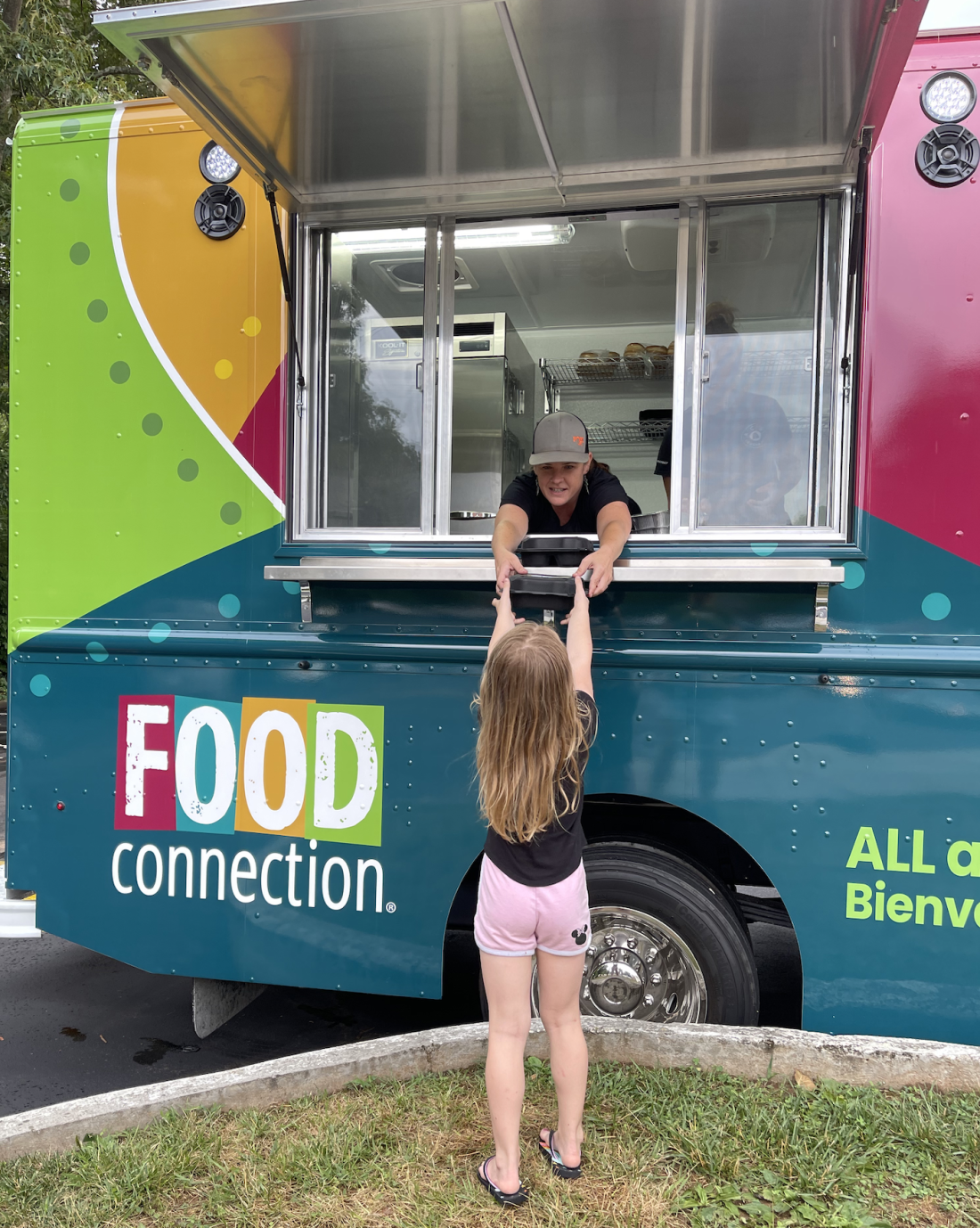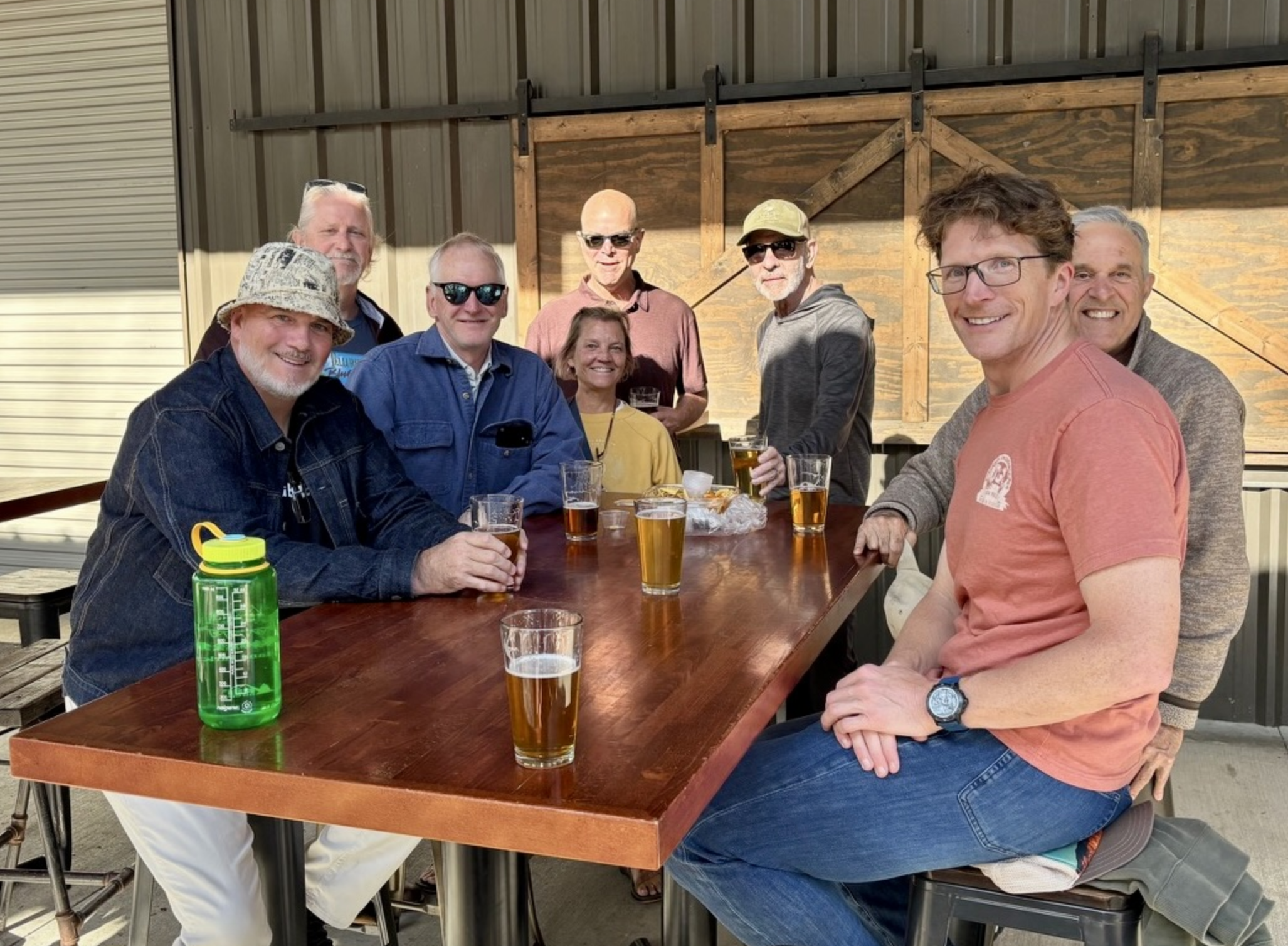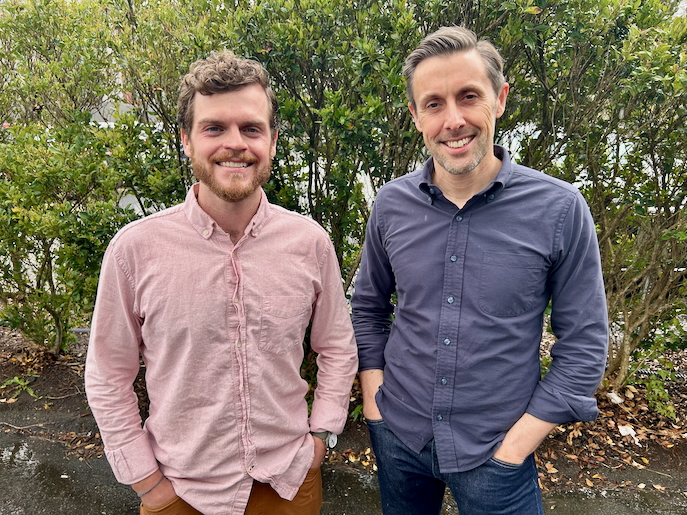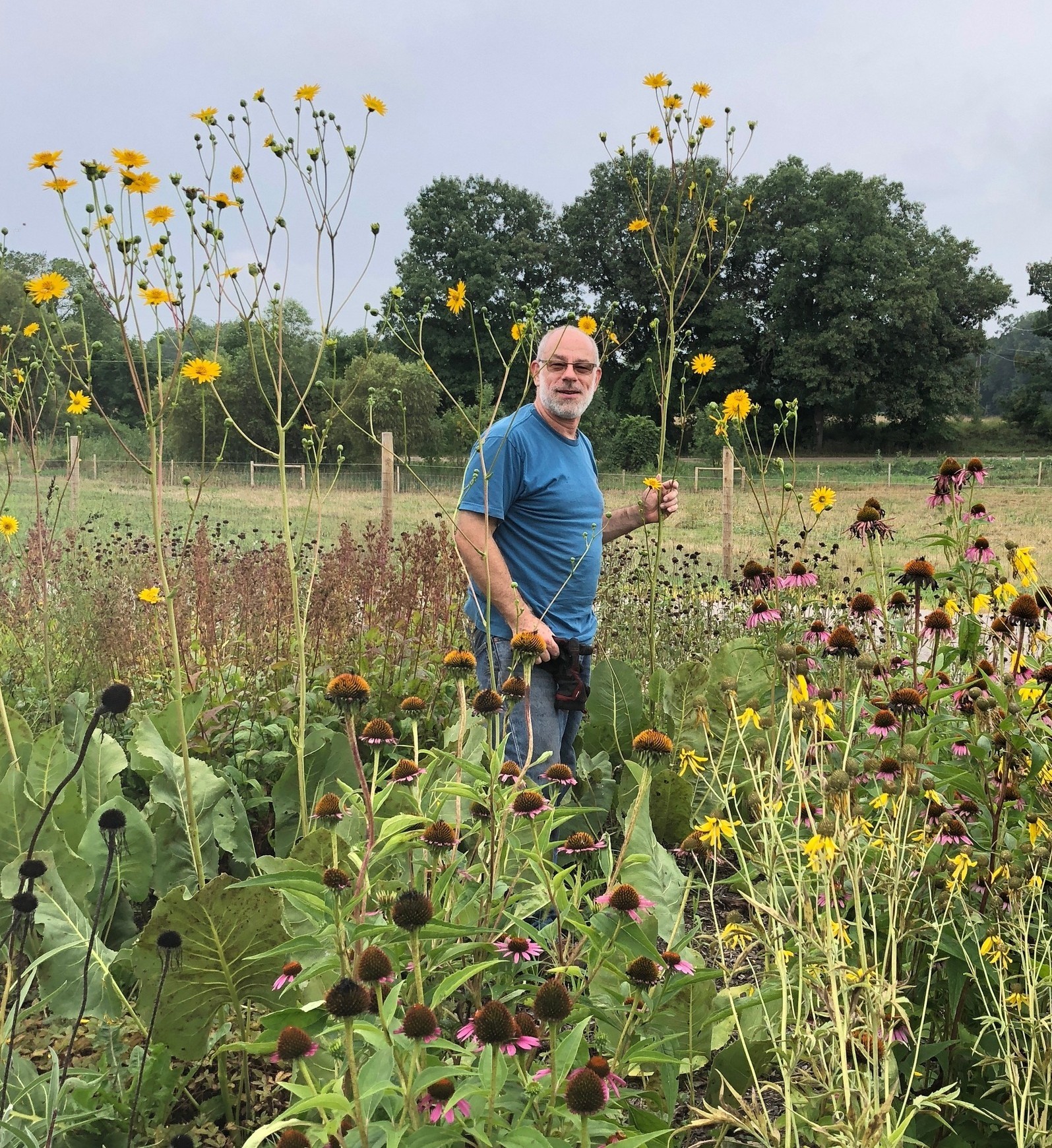For many Western North Carolina residents after Tropical Storm Helene, long days spent clearing away debris, figuring out where to find water and trying to reach friends and family ended in sharing a meal with neighbors — one often made using food salvaged from rapidly thawing freezers and refrigerators.
For three area nonprofits, rescuing food before it’s wasted then redistributing it to those in need is their everyday mission. Long before Helene made landfall, these groups were focused on preventing food waste and feeding community members.
The U.S. Department of Agriculture (USDA) reports that around 40% of all food produced in the United States ends up in the landfill each year. At the same time, WNC’s rate of food insecurity — defined as lacking reliable access to a sufficient quantity of nutritious food — is about 20% for adults and nearly 15% for households with children, according to the WNC Health Network.
Food waste also poses serious environmental concerns. Decomposing food produces vast amounts of methane, a potent greenhouse gas that contributes significantly to climate change. The U.S. Environmental Protection Agency (EPA) estimates that 58% of the methane released into the atmosphere from municipal landfills comes from food, which comprises about 24% of landfill waste.
In response, both the City of Asheville and Buncombe County have declared April to be Food Waste Reduction Month. At its Tuesday, May 13, meeting, Asheville City Council will mark this year’s Food Waste Reduction Month with an official proclamation.
Food Connection
“We strongly believe that no fresh food should end up in the landfill when our neighbors don’t have enough to eat,” says Marisha MacMorran, executive director of Food Connection.
Food Connection’s mission, she says, is twofold. “We’re helping the health of our planet and the health of our community members.” Founded in 2015 by Flori Pate, the Asheville-based nonprofit rescues surplus chef-prepared food that might otherwise end up in the landfill and redistributes it to the community.
Food Connection partners with catering companies, restaurants, retirement centers, universities, hotels and hospitals — any business or institution that produces more food than it can use. On the day MacMorran spoke with Xpress, the nonprofit’s staff and volunteers had just rescued 63 pans of food from a local conference center. Each pan weighed between 13 and 20 pounds.
In the 10 years since Food Connection launched, it’s kept 375 tons of food out of the Buncombe County landfill — that’s 750,000 pounds, or 750,000 meals, that have gone directly to hungry community members.

Food Connection shares some of its rescued food with the community through local agencies, including the Salvation Army, shelters and faith-based groups. Some of it is distributed via food truck — a mobile meals program MacMorran describes as a “free food truck experience.”
Foods are repackaged into individual heat-and-serve, nutritionally balanced meals — think beef brisket and brussels sprouts or gourmet macaroni and cheese fresh from the Omni Grove Park Inn. They’re then handed out for free from the widow of Food Connection’s colorful van — nicknamed Fran — at after-school programs, early childhood learning centers and in rural neighborhoods experiencing high rates of food insecurity.
Because many food-insecure people don’t qualify for federal food assistance, Food Connection has a “no questions asked” policy.
It’s not always a financial barrier that inhibits access to food, MacMorran points out. Many people who come to the food truck work two or three jobs and don’t have time to cook a meal for their families.
“Folks can come to the truck and get meals for that night and the next night, and the only question we ask is if they want beef, salmon or pulled pork,” she says.
Food Connection has a lot planned for 2025. Between preparing to launch services in Henderson County and planning a capital campaign to build a new facility for scaling its operations, the organization is also gearing up for its annual Golf Against Hunger Tournament fundraiser on Monday, April 21.
To get involved, visit avl.mx/97q.
12 Baskets Café
“Food has a unique and powerful ability to bring people together,” says Ben Williamson, executive director of the Asheville Poverty Initiative (API). “When we gather and rescue amazing food from across the city and get people in a room together, good things happen.”
Williamson is speaking about 12 Baskets Café, an API program that serves free hot meals to the community at its Haywood Road location seven days a week.
Just like a typical restaurant, people are greeted at the 12 Baskets door and seated before ordering from a menu that changes daily. After eating a meal cooked from surplus grocery store items or rescued from one of Asheville’s caterers or restaurants, guests can listen to live music in the café’s garden, craft poems with a writing group or speak with representatives from community partners, such as Pisgah Legal Services or Homeward Bound.
A free store with groceries, toiletries, pet food, camping gear and other useful items is also part of the program. “It’s a community center as well as a café,” Williamson tells Xpress. “Anytime we’re not serving food, folks are welcome to bring their talents and gifts to build community.”
Each week, the location serves 800-900 meals and fills 250 grocery boxes. “People are taught the false narrative of scarcity, but the reality is abundance,” says Williamson. “There’s more than enough for everybody.”
The goal at 12 Baskets, he adds, is to model this reality for the community. As with Food Connection, there are no income verification or other forms to fill out to take advantage of services. Everyone is welcome to sit down and have a meal, including the volunteers.
“We’re trying to break down the traditional charity-driven nonprofit model and have something a little closer to mutual aid,” Williamson says.
At 12 Baskets, he continues, washing dishes and waiting tables are no less important than grabbing a seat and having a conversation with folks you don’t know. “That’s an act of service. It helps our city get stronger.”

This spirit was on full display in the aftermath of Tropical Storm Helene, when volunteers and staff cooked from 12 Baskets’ freezer and made sandwiches in the dark to distribute to neighbors. The site eventually got portable bathrooms and potable water so it could serve as a resource hub.
With so many organizations and people in the community helping each other, it was like a “12 Baskets on every corner,” Williamson tells Xpress. “But for us, that’s our everyday.”
The emergency of poverty existed long before Helene, he remarks, and will be here long after, but we can work together toward a solution. “We say it all the time: Community cures poverty,” he says. “After Helene, the community needle got moved a little bit. We can keep it there, but it’s going to take intention and action.”
To get involved, visit avl.mx/dwr.
WNC Food Waste Solutions
As its name implies, WNC Food Waste Solutions seeks to educate the community about all the ways that food can be used and kept out of the landfill. With the exception of full-time coordinator Rechelle Ray, efforts are driven by volunteers, who put together programming and share resources with the community partners (including the two mentioned above).
To promote collaboration, the group hosts quarterly networking events for anyone — including individual community members, government entities, businesses and organizations — interested in food waste reduction.
Food Waste Solutions’ biggest event is the biannual Food Waste Solutions Summit, to be held this year on Tuesday, Nov. 11, at the Mission Health/A-B Tech Conference Center. The summit gathers community leaders, innovators, businesses and organizations that are dedicated to addressing food waste and finding sustainable solutions.
“We are all learning from each other,” Ray says.
WNC Food Waste Solutions engages through two main working groups. The first, Repurpose and Compost, shares information about how to reuse food scraps in the home (think strawberry syrup made from strawberry tops), where to take food scraps that can be composted, and how to start composting in your own backyard.
The second group, Restaurants, Retailers and Redistributors, focuses on how businesses can help drive wider, systemic change to both reduce their environmental impact and improve food security in the region.
Ray stresses that it’s up to households and businesses alike to tackle the issue of food waste. “The more people who understand the issue, the more opportunity for collaboration,” she says. “The individual work and the local work together will make the most impact.”
To get involved, visit avl.mx/970.








